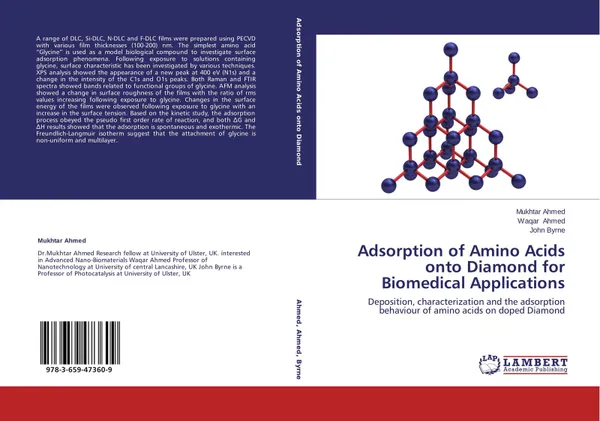Adsorption of Amino Acids onto Diamond for Biomedical Applications
📒 A range of DLC, Si-DLC, N-DLC and F-DLC films were prepared using PECVD with various film thicknesses (100-200) nm. The simplest amino acid “Glycine” is used as a model biological compound to investigate surface adsorption phenomena. Following exposure to solutions containing glycine, surface characteristic has been investigated by various techniques. XPS analysis showed the appearance of a new peak at 400 eV (N1s) and a change in the intensity of the C1s and O1s peaks. Both Raman and FTIR spectra showed bands related to functional groups of glycine. AFM analysis showed a change in surface roughness of the films with the ratio of rms values increasing following exposure to glycine. Changes in the surface energy of the films were observed following exposure to glycine with an increase in the surface tension. Based on the kinetic study, the adsorption process obeyed the pseudo first order rate of reaction, and both ∆G and ∆H results showed that the adsorption is spontaneous and exothermic. The Freundlich-Langmuir isotherm suggest that the attachment of glycine is non-uniform and multilayer.
Мнения
